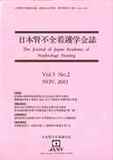Japanese
English
- 有料閲覧
- Abstract 文献概要
- 参考文献 Reference
- サイト内被引用 Cited by
目的:腹膜透析(以下,PDと略す)患者とその家族のQOLの関係および家族の介護負担を明らかにする.
方法:対象は,2002年3月,PD患者会主催の研修会に参加したPD対象者26人とその家族34人.対象者のQOLは腎疾患健康関連QOL尺度KDQOLTM,家族はSF-36を使用.家族の介護負担度はZarit介護負担尺度(ZBI)を用いて測定した.他の調査項目は,PD歴,治療法,年齢,性別,病歴である.質問紙は郵送で回収した(回収率81.7%).
結果:PD対象者の平均年齢49.0歳(SD=15.6).家族の平均年齢46.6歳(SD=15.4).家族の介護負担平均得点は,12.5(SD=11.8)点であった.これは,痴呆を介護する家族の負担度より低かった.また,SF-36下位尺度8項目のなかで,PD対象者・家族ともに最も低かったのは,全体的健康感「GH」と活力「VT」であった.さらに患者は,SF-36下位尺度8項目のすべての項目で家族の平均得点より低かった.PD対象者と家族でSF-36下位尺度8項目の平均値に有意差があったのは,身体機能「PF」,身体の日常役割機能「RP」,精神の日常役割機能「RE」,全体的健康感「GH」と社会生活機能「SF」であった.国民標準値と家族のSF-36とを比較すると,家族は,「SF」と「RE」および心の健康「MH」が低かった.
結論:QOLの観点からみると,PD対象者は社会生活機能面での障害が生じており,また家族は,精神的な健康度が低いことが明らかとなった.PD患者や家族のQOLが向上できるように積極的な看護介入の必要性が示唆された.
Objective: The purpose of the present study was to examine the relationship between peritoneal dialysis (PD) patients and caregivers health-related-quality of life (HRQOL) and burden.
Method: Subjects (n=26PD patients,n=34caregivers) were recruited from a Peritoneal Dialysis (PD) Patient Support Group in southern Japan in March of 2002. HRQOL was measured using the Kidney Disease QOL-SF (KDQOLTM) and the SF-36. Caregiver burden was measured with the Zarit Burden Interview (ZBI). Data was also collected on subject's duration of illness, treatment modality, age, sex, and medical history. All data was collected by mail surveys.
Results: Mean age of PD patients was 49.0 (SD=15.6); caregiver's was 46.6 (SD=15.4). Mean caregiver burden on the ZBI was 12.5 (SD=11.8) which is considerably lower than that reported among dementia and/or stroke caregivers. Both caregivers and patients rated their general health and vitality as among the lowest of the 8 SF dimensions. In addition, patients were lower than all normative scores and significantly lower than caregivers in Physical Functioning, Role Physical Functioning, Role Emotional Functioning, General Health, and Social Functioning. Compared to national normative data for their age and sex group, caregivers were substantially lower in Social Functioning, Role Emotional Functioning and Mental Health.
Conclusions: PD patients are at risk for social role dysfunction and their caregivers are at risk for decreased mental health. Further research is needed to identify interventions to improve the HRQOL of PD patients and their family caregivers.
Copyright © 2003, JAPAN ACADEMY OF NEPHROLOGY NURSING. All rights reserved.


